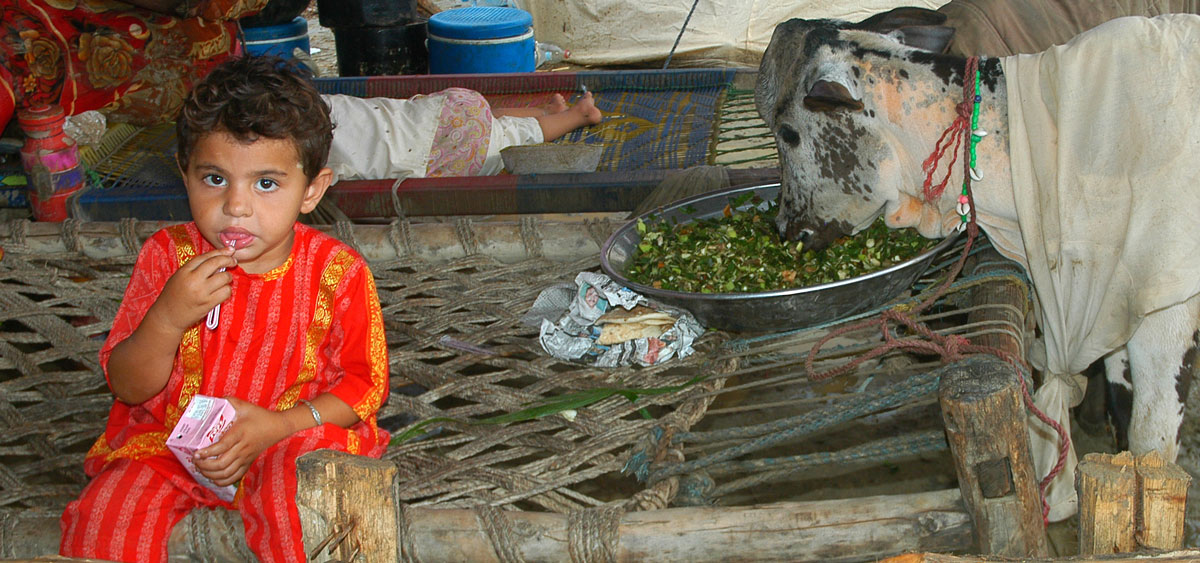More than six in 10 infectious diseases in humans are spread from animals. These illnesses are known as zoonotic diseases, and Relief International has been working to combat them in Pakistan.
Relief International worked to prevent the spread of zoonotic diseases in Pakistan for over a decade. Zoonotic diseases are those spread from animals to humans and account for more than 6 in 10 infectious diseases that humans contract.
Our project focused on preventing the spread of brucellosis, tuberculosis, anthrax, rabies and avian flu. With some of these diseases spread through infected meat or milk from goats and cattle, Relief International’s efforts centered on raising public awareness, modifying behavior among those who cared for livestock, and improving detection of the disease in infected animals.
“The most important part of this project is civic engagement,” said Dr. Javed Khan, technical director for the program. “Our role is not to treat disease as we usually do in humanitarian assistance. Relief International’s role is to work with the government and community actors so they can fix issues themselves.”
The idea that human, animal, and environmental health are all linked is called One Health. The concept has been around since the 1800s, according to the Centers for Disease Control, when scientists began to note the similarity in disease processes among animals and humans. But it has only gained prominence in recent years as international travel, climate change, and human population growth have brought animals and humans together in new ways, causing the emergence and re-emergence of many diseases.
“When the program started in 2008, there was no concept of collaboration between livestock and human health,” said Dr. Khan.
The Pakistan program’s three-pronged approach drew new attention to these links. The first step was to raise awareness at both the community and government level about these diseases and how they were transmitted. The next step was to train community members and government officials to diagnose and treat zoonoses successfully. Finally, zoonotic disease policy was integrated into existing public health approaches.
The program targeted academia as well. We introduced the study of zoonotic diseases into university curricula in Yemen and Pakistan, training nearly 40 researchers in the field.
This holistic, community-based approach produced Zoonoses Control Associations, organizations that gather local government officials and community representatives to discuss and decide on disease-curbing measures.
The project appealed to other countries facing high rates of zoonotic disease. Today, Relief International’s Pakistan program has grown into the One Health Asia program covering Afghanistan, Bangladesh, and Nepal through additional support from the European Commission.
“The spirit of the program — the focus on community empowerment — has remained consistent, while specific policies and strategies were tailored to each country’s needs” explains Dr. Khan.
“The infrastructure created by the community-based approach goes beyond its initial goals. The chain of command of sample collection, transportation, identification, and reporting that has been established for zoonotic diseases can be used for other circumstances as well.
The networks that are developed can be used for other diseases and human health issues, or even environmental issues. Regular meetings between animal health and human health providers has created a cadre of people focused on community-level health.”

